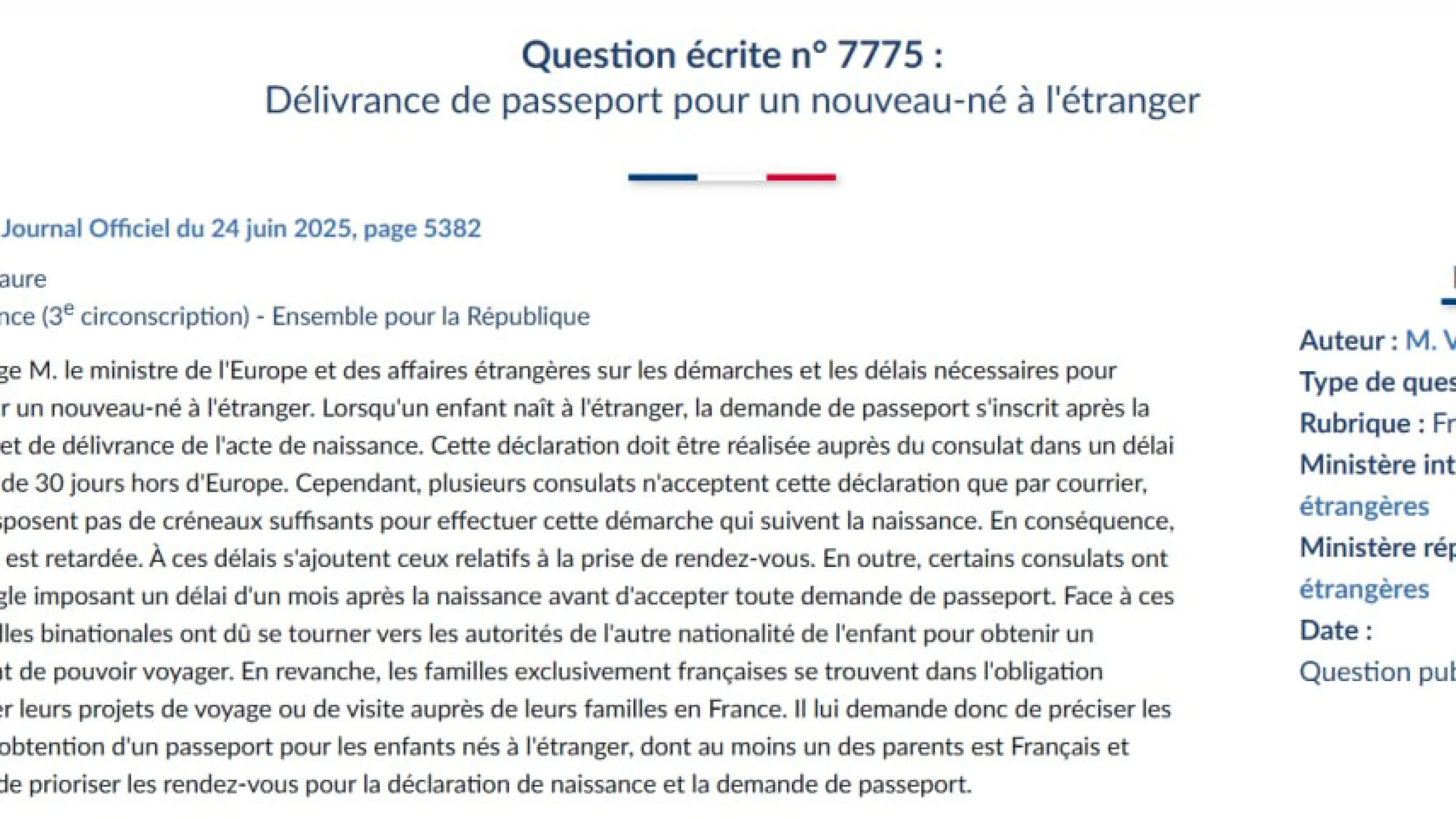LADIES AND GENTLEMEN,
The President of the United States has stated on multiple occasions, most recently, that he wishes to "acquire" Greenland, either through negotiation or by force. A member of the European Union since 1973 and of the North Atlantic Treaty Organization (NATO) since 1949, Denmark is a democratic and sovereign state with authority over Greenland. Formerly a Danish colony, Greenland has been a constituent territory of the Kingdom of Denmark since 1953, with a semi-autonomous status granted in 1979 and expanded in 2009, allowing it to exercise all powers except in five key areas: foreign policy, defence and security, policing and justice, and monetary policy.
Greenland’s status as part of the Kingdom of Denmark (the "Danish Realm") has been recognized by all European Union and European Economic Area member states, as well as by the federal government of the United States, since 1916, as part of the negotiations leading to the Treaty of the Danish West Indies (1917). This recognition was further upheld under international law by the Permanent Court of International Justice in its ruling of 5 September 1933. Yet, despite this unequivocal legal foundation and over a century of constant recognition, the current President of the United States declared on 7 January this year that Denmark should "relinquish its legal rights" over part of its territory—Greenland—to the United States, before questioning "whether Denmark really has a legal basis for this claim." This position has been reiterated on several occasions, with the President of the United States making it clear that he would not rule out the use of force to acquire Greenland. These threats directly challenge the fundamental principles of international law, national sovereignty, and the right of peoples to self-determination. They must not be downplayed. In fact, similar statements were made by the President of the United States in 2019.
These intentions, which violate the fundamental principles of international law and the right to self-determination, constitute a direct and serious threat to Denmark’s sovereignty. They are all the more destabilizing given that Greenland has been an "Overseas Country and Territory" (OCT) associated with the European Union since 1985 and that Denmark is a reliable partner of the European Union, directly contributing to the collective security of the European continent, particularly within NATO. Furthermore, the United States maintains a military base at Pituffik in Greenland, a key component of the North Atlantic defence architecture, historically conceived as its first line of defence. Pressuring Denmark in this manner is therefore both contrary to the principles of international law and unjustified given Denmark’s commitment to strategic and security cooperation. Shortly after the US President's statements, the Danish and Greenlandic authorities, as well as the island's inhabitants, voiced their opposition to the idea of leaving the Kingdom of Denmark to join the United States. According to a poll published in a Greenland newspaper on 29 January 2025, 85% of the island's inhabitants are opposed.
This situation is a test of European countries' solidarity, cohesion, and determination to defend their strategic autonomy and the right of their peoples to self-determination, at a time when the number of Arctic powers is increasing. While Russia and the United States have historically dominated the region, new global players, such as China—which recently declared itself a "near-Arctic State"—are now asserting their interests. This context underscores the urgency of accelerating the construction of a European security architecture that is more independent of the United States. Any further retreat by the European Union and its member states in the face of powers that challenge international law would only multiply the costs we will have to bear to ensure our defence and safeguard our interests. In this context, France must take concrete action to demonstrate its support—along with that of the European Union—for Denmark. Our country could initiate dialogue with the Danish authorities to swiftly determine the most useful aid in line with their needs, to help guarantee security in the region. Such assistance could include a military presence, as it is the case in Estonia, for example, where French armed forces are deployed as part of NATO’s LYNX mission.
With its powerful and distinctive voice on the international stage, France could also initiate broader discussions with six of the eight members of the Arctic Council—Canada, Denmark, Finland, Iceland, Norway, and Sweden—to explore enhanced defence cooperation in the region. Drawing inspiration from the informal enhanced cooperation groups that have emerged in recent years, such an initiative by France would serve to reassure our Nordic allies. Similarly, France has played a unique role for nearly a century through its scientific and cultural contributions in the region. Indeed, France is currently the only European Union country, apart from Denmark, that maintains an operational capability for extreme environment intervention and survival on the Greenland ice cap (Exercise UPPICK) and conducts sea rescue and coastguard exercises in Greenlandic territorial waters (Exercise ARGUS). This motion for a European resolution calls on the French government to officially adopt this position and translate it into concrete action, with the aim of establishing a long-term strategy to uphold the sovereignty of Denmark, Greenland, and the European Union, while strengthening the Union’s strategic autonomy.
MOTION FOR A EUROPEAN RESOLUTION
Sole article
The National Assembly,
Having regard to Article 88 4 of the Constitution,
Having regard to Rule 151-5 of the Rules of Procedure of the National Assembly,
Having regard to ..,
Considering ... ;
Invites the Government to ...
Sole article
The National Assembly,
Having regard to Article 34-1 of the Constitution,
Having regard to Article 136 of the Rules of Procedure of the National Assembly,
Having regard to Article 2 of the Charter of the United Nations,
Having regard to the Ottawa Declaration of 19 September 1996,
Having regard to the Brussels Joint Declaration of 19 March 2015,
Having regard to Articles 4 and 198 to 204 of the Treaty on the Functioning of the European Union,
Having regard to Article 3 of the Treaty amending the Treaties establishing the European Communities as regards Greenland,
Having regard to Articles 51 and 52 of the Charter of Fundamental Rights of the European Union,
Having regard to Articles 11 and 12 of the Greenland Home Rule Act,
Having regard to Association Decision 2021/1764 of 5 October 2021,
Considering the repeated comments by the President of the United States concerning Denmark and Greenland;
Considering that the Danish Prime Minister stated in a telephone conversation with the President of the United States on 15 January 2025 that it was up to Greenland itself to decide on its independence ;
Considering the Danish authorities' explicit request for support from its European partners;
Considering the constant will of the Greenland authorities to ensure that the Greenlanders' right to self-determination is respected;
Considering that the Greenland authorities and Greenlanders are overwhelmingly opposed to the idea of becoming part of the United States; Whereas Greenland is an overseas territory of the European Union;
1. Strongly condemns the remarks made by the President of the United States, which call into question Danish sovereignty over Greenland and do not rule out the use of force in order to integrate this territory into his country. These actions contravene the rules of international law and respect for the sovereignty of States and peoples. They are also a threat to an ecologically sensitive territory endowed with fossil and mineral resources.
2. Expresses its full solidarity with the Danish and Greenland authorities in their defence of international law and their sovereignty in the face of statements that constitute a direct threat to them.
3. Expresses its wish to participate more closely in the work of the Conference of Parliamentarians of the Arctic Region (CPAR) in support of the threats to international law and respect for sovereignty in the region.
4. Expresses its unwavering support for the Greenland authorities in the context of the rotating chairmanship of the Arctic Council, the leading regional and multilateral diplomatic body, held by the Government of Greenland on behalf of the Kingdom of Denmark as a whole from May 2025 for a period of two years.
5. Reaffirms that the collective security of the European Union and the Overseas Countries and Territories associated with the European Union (OCTs) must be respected, as well as France's full commitment to Denmark and Greenland to ensure that their rights are respected.
6. Stresses that the European Union must seize this crisis to strengthen cooperation between its Member States and build genuine European strategic autonomy.
7. Invites the French government to enter into a dialogue with the Danish and Greenland authorities in order to identify the assistance it could provide to guarantee security in the region, in accordance with their needs and wishes. It could be envisaged that the French government officially expresses its readiness to set up a European military presence in Greenland in full cooperation with Denmark and Greenland.
8. Invites the French government to formally express its wish that a declaration on the preservation of sovereignty, international law and the avoidance of armed conflict between member countries of the Arctic Security Forces Forum (ASFR), of which France is a full member, be debated and adopted at the next meeting of the Forum.
9. Invites the French government to update its 2016 Arctic roadmap, taking into account the new geopolitical context and recent developments in defence and security, economic and scientific cooperation and environmental protection.




